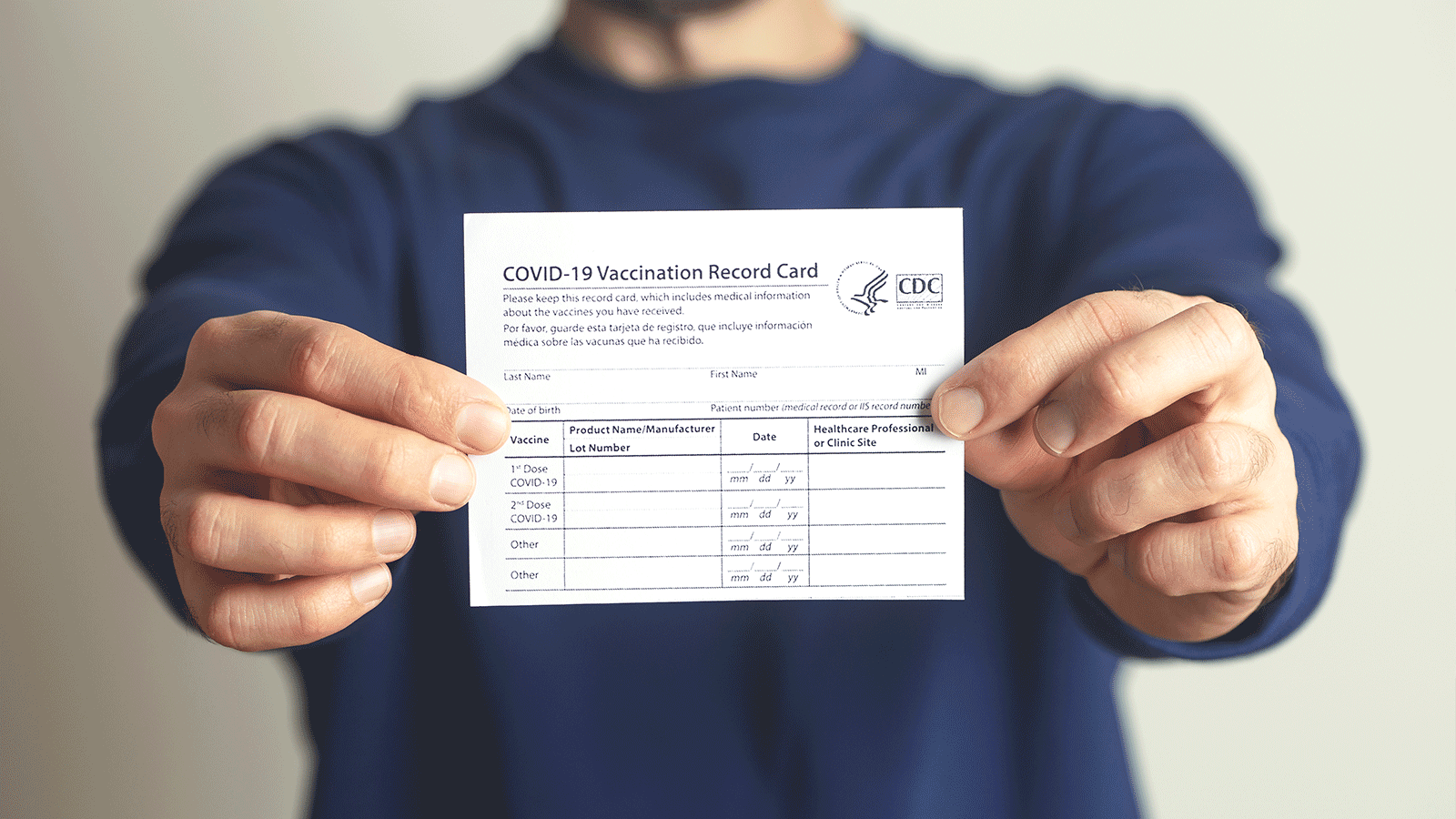COVID vaccines are rolling out, and so are the questions.
The COVID-19 vaccine is our strongest tool to fight the pandemic. But can employers require their employees to be vaccinated? What rights do employees have to refuse a vaccine? And can employers force employees to disclose their vaccination status?
The answer to these questions isn't a simple "yes" or "no." In some circumstances, employers can require a vaccination. But workers also have legal rights to potentially refuse a vaccine. The Equal Employment Opportunity Commission (EEOC), which enforces federal employment laws, offers guidance on COVID-19 vaccination and employment laws. It points to three major federal laws when evaluating workers' rights and vaccination requirements:
-
Title VII of the Civil Rights Act protects employees from workplace discrimination on the basis of race, sex, religion, and other categories. The religious protections may come into play with COVID-19 vaccines.
-
The Americans with Disabilities Act (ADA) protects employees from discrimination because of a disability.
-
The Rehabilitation Act creates rules for employers asking for employee medical information.
These laws, along with state and local laws, govern the legality of COVID-19 vaccination policies in the workplace.
Can employers require a COVID vaccination for employees?
Under federal law, employers can require vaccinations to make sure "an individual shall not pose a direct threat to the health or safety of individuals in the workplace.”
However, in order to require any vaccination, employers must prove that unvaccinated employees would cause a “significant risk of substantial harm to the health or safety of the individual or others that cannot be eliminated or reduced by reasonable accommodation.”
So, how can employers evaluate the direct threat of unvaccinated employees? The EEOC recommends considering the following:
-
The duration of the risk
-
The severity of the harm
-
The likelihood of potential harm
-
The imminence of harm
If employers believe unvaccinated employees qualify as a direct threat, they can require that their employees receive the vaccine. Employers cannot automatically fire anyone who refuses the vaccine. They can ban these employees from coming to work, though.
Exceptions
Even in these circumstances, however, there are exceptions. Employees who cannot receive the vaccine because of a disability must receive a reasonable accommodation, such as a remote work option.
Similarly, the CDC points out that employees can receive an exemption for medical concerns, such as the risk of an allergic reaction or a medical condition that may put them at added risk for complications. The same applies to employees who choose not to vaccinate for religious reasons.
When working with such exceptions, companies that otherwise require vaccines must have clear policies in place to handle accommodation requests. Additionally, employers must keep any accommodation requests confidential, and the law prevents them from retaliating against anyone who requests an accommodation.
And as the pandemic continues, the health and safety risk of unvaccinated individuals will change. As a greater number of employees receive the vaccine, the direct threat of unvaccinated employees diminishes.
Can employers ask about employees' vaccination status?
Yes, employers can ask for proof of vaccination status. Managers and supervisors should be cautious about asking for the reasons an employee has not received the vaccine, though — these questions could potentially violate federal protections.
The ADA protects the rights of employers not to disclose private medical information. Does asking an employee about their vaccination status violate privacy protections? According to the EEOC, employers can ask or require employees to confirm they received the COVID-19 vaccination without violating the ADA.
However, employers should consider follow-up questions carefully. Asking why someone did not receive the vaccine could potentially require employees to provide information about a disability, for instance.
The CDC also notes that employers requiring proof of vaccination cannot ask for any additional medical information as part of that proof.
Can employers encourage a COVID vaccination?
The law is clearer in this area: Employers can encourage their employees to get vaccinated and even hold on-site vaccination clinics.
However, employers must comply with employment laws when promoting vaccination. The EEOC warns that asking employees pre-vaccination screening questions could constitute a "disability-related inquiry."
Employers must show that not asking these questions might pose a threat to the health or safety of the employee or others. When employers make the vaccination voluntary, employees can choose whether or not to answer these questions. If an employee opts out of answering, employers can withhold the vaccine. Still, employment laws protect employees from retaliation or threats from their employer.
Can employers ask job candidates about their vaccination status?
Just as employers can ask employees if they've been vaccinated, they can also ask job candidates about their vaccination status. However, hiring managers should limit the scope of their questions.
For example, a hiring manager can ask a job candidate if she's received the COVID-19 vaccine. If she says no, the hiring manager should be cautious about requesting a reason.
Consider a scenario where the job candidate is not vaccinated for religious reasons or because of a disability. If the candidate discloses this information to the hiring manager and eventually does not receive a job offer, the company may open itself up to a religious or disability discrimination lawsuit. The company would need to prove that hiring decisions were not based on the candidate's religion or disability status.
Similarly, employers are within their rights to not hire an unvaccinated job candidate — unless the job candidate has a legally protected reason for refusing the vaccine, including a disability or religious belief. Turning down a vaccine for personal reasons likely does not fall into a protected category.
Summarizing employment law and COVID-19 vaccinations
Employers have a fair amount of latitude to request COVID-19 vaccination information and even require vaccines in the name of workplace safety.
However, federal employment laws also place restrictions on both the types of questions employers can ask and the decisions they can legally make based on an employee's vaccination status. State and local laws may include additional employee protections as well.
When creating a COVID-19 vaccination policy, organizations should work closely with their Human Resources department and an employment lawyer versed in local laws.
On the employee side of things, workers should understand their rights to keep certain medical information private and request accommodations from their employer. If an employer retaliates against an employee for refusing a vaccine for a protected reason, the employee may be able to file a complaint with the EEOC.
Of course, as the number of vaccinated Americans increases and guidelines from the CDC change, the rules about workplace vaccination policies may also change. Therefore, it's important for employers to re-evaluate their policies periodically and check with an employment lawyer to make sure they are always following the law.
Keep in mind that the EEOC guidelines have not yet been tested in the courts. Further guidance will come as conflicts between employees who wish not to get the vaccine and their employers ask courts to resolve the issues.
The COVID-19 pandemic greatly affected the American workforce. If you're conducting a job search, check the strength of your resume by getting a free resume review.
Recommended Reading:
-
COVID-19 Workplace Safety: Voicing Your Concerns and Knowing Your Options
-
Ready to Quit After COVID-19? 3 Strategies to Find a Better Job
-
Have You Felt Mistreated by Your Employer During the Pandemic?
 Charles Joseph, JD
Charles Joseph, JD 